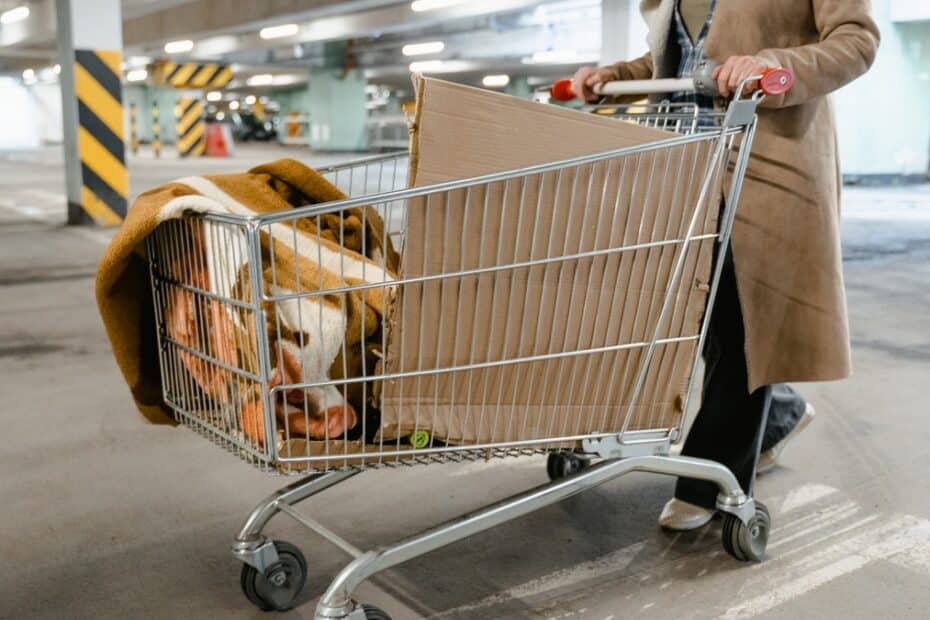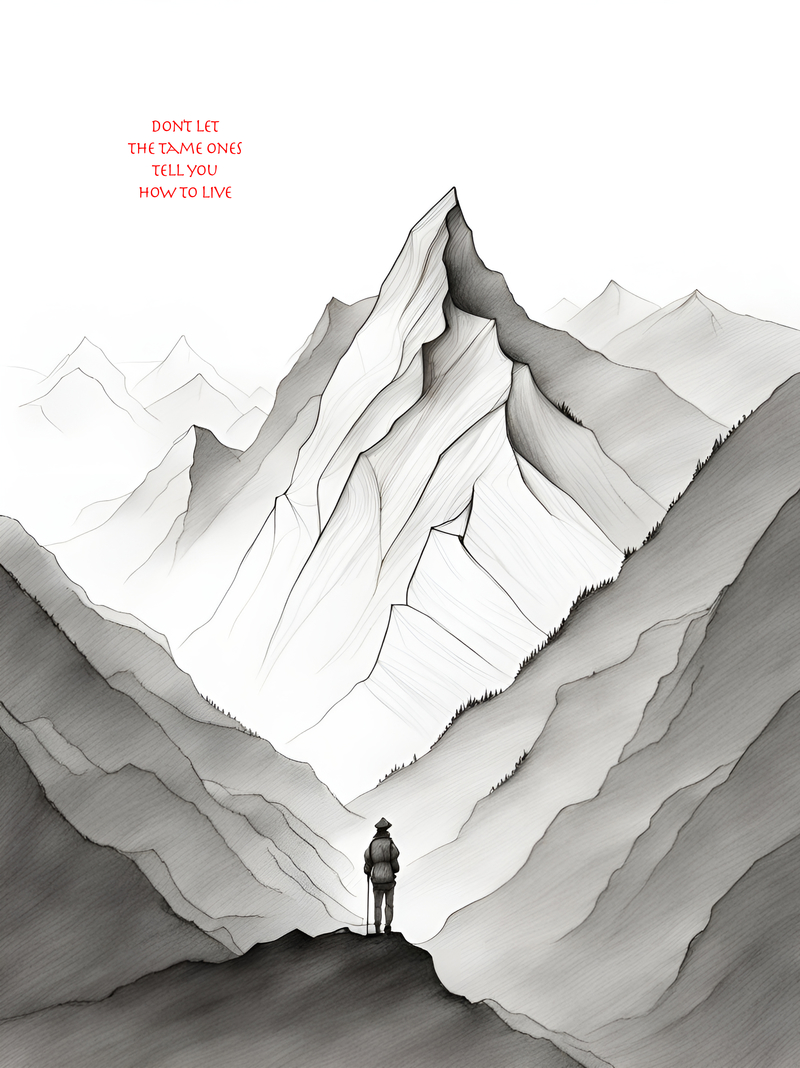“The shopping cart is the ultimate litmus test for whether a person is capable of self-governing. To return the shopping cart is an easy, convenient task and one which we all recognize as the correct, appropriate thing to do. To return the shopping cart is objectively right. There are no situations other than dire emergencies in which a person is not able to return their cart. Simultaneously, it is not illegal to abandon your shopping cart. Therefore the shopping cart presents itself as the apex example of whether a person will do what is right without being forced to do it. No one will punish you for not returning the shopping cart, no one will fine you or kill you for not returning the shopping cart, you gain nothing by returning the shopping cart. You must return the shopping cart out of the goodness of your own heart. You must return the shopping cart because it is the right thing to do. Because it is correct. A person who is unable to do this is no better than an animal, an absolute savage who can only be made to do what is right by threatening them a law and the force that stands behind it. The Shopping Cart is what determines whether a person is a good or bad member of society.”
Glenn Danzig
Beyond the Quote (183/365)
…Maybe not an “animal” or an “absolute savage,” but certainly a person who has given in to their lazy tendencies. I think we all have that moment when we load the last grocery bag into the car and we look back at the cart only to deeply contemplate how to handle the no-longer-needed thing that’s just sitting there staring at us. We look around for the nearest cart return station and try to minimize the amount of effort it will take to get the thing out of our way so that we can quickly make our escape back home. Isn’t it amazing how quickly we can change our minds about something that provided us so much convenience to all-of-a-sudden being something that is such an annoyance and has become such a hassle? Ah, but how quickly we do that for so much in life, eh?
It sure is convenient having plates to put our food on so that we can transport it more easily and keep the table surfaces clean. But, it sure is inconvenient having to clean them up and put them back where we got them from when we’re done. It sure is convenient having clean clothes to wear, but it sure is a hassle having to wash, dry, fold, and put them back away once they’re used and dirty. Using a clean toilet is nice. Having to clean the toilet isn’t so nice. But, as you already know, one isn’t possible without the other. Convenience isn’t possible without responsibility. Responsibility is what gives our lives convenience. And it’s what gives us a sense of certainty and community, too.
It isn’t until we take responsibility for our lives that we can ever fully take responsibility for anybody else’s. If we can’t clean up after ourselves, how can we clean up after anybody else? If we can’t put back what we’ve used, how can we judge anybody else for not putting back what they’ve used? If our own house isn’t in perfect order, how can we criticize or condemn anybody else’s house? If you want to be a “good” member of society, it starts with handling your own. It starts in your own backyard, or, better yet, your own room. And it’s only from that room that your “good” can only ever ripple outward from.
If you’re the type who is only “using” and “abusing” what everybody else has made available to you and you’re not properly responding to the effects of your own actions, then yes, you are doing a “bad” job contributing to society as a whole. That’s what a society is after all isn’t it? A social contract where we all agree upon certain living practices and then contribute to make the living area better for all who are a part? Why would we want to live in a society that makes living worse? The society is only ever as “good” as the members of the society are “good” which can, in part, be found in how they work to take care of themselves and contribute back to others.
This “litmus test” that Glenn Danzig describes above is, in fact, a good place to start your mental reflections on where you stand. Do you “use” and “abuse” what’s been made available to you? Do you leave for others messes and piles of work and abandoned shopping carts that should rightfully be handled by you? Are you properly caring for yourself as you would for somebody who you were responsible for? See, here’s the thing: the responsibility you take for yourself is the rent you pay for the privilege of being a part of this society. Point blank. And the extra responsibilities you take are the deductions other people are able to take off of their rent. And everybody loves somebody that gives them deductions. Be that person.
But, you can’t give deductions out to society until you pay your rent in full first—otherwise, you’ll just get evicted. So, the next time you finish using a shopping cart, remember that returning the shopping cart is your rent. When you finish using a dish, remember that cleaning it is your rent, too. When you go for a hike in the woods, remember that bringing out everything you brought in and leaving it clean is also, your rent. It’s also, in each of these cases, the right thing to do.
And while, in some of your situations there may not be any immediate consequence to ignoring your responsibilities, it will become increasingly evident who is contributing and who is abusing the system we’re trying to regulate as a whole. And don’t think that people don’t notice—we do. In fact, I read somewhere that one of the best indicators of marital success is how the chores were divvied up between the couple—but, that’s a conversation for another day. So, don’t talk to me about how irresponsible this person or that person is until you own all of your responsibilities for yourself. Don’t talk to me about fixing society until you’ve done everything you can to fix it yourself. And don’t talk to me about wanting to change the world until you change your own world first. This should be a rule for life. And shopping carts can be your litmus to figuring out where you need to start.
NEW In The Shop: Don’t Let The Tame Ones Tell You How To Live [Poster]
Why We ♥ It: Some of the best advice I (Matt here) ever got was: don’t take life advice from people who aren’t living a life you want to live and don’t take criticism from people you wouldn’t go to for advice. I created this poster to act as a reminder to listen more closely to our role models and less closely to our critics, trolls, and tamed-comfort-zone-hugger acquaintances. It’s also a perfect gift for the outdoor adventurer, travel enthusiast, or solo explorer (or soon to be). Available in print or digital download. 👇🏼
...Want to advertise your book, product, or service? Send inquiries to matt@movemequotes.com.

Written by Matt Hogan
Founder of MoveMe Quotes. On a mission to help busy people do inner work—for better mental health; for healing; for personal growth. Find me on Twitter / IG / Medium. I also share daily insights here. 🌱
It has taken me 1,000’s of hours to build this free library for you. If it has helped you, you can support my continued effort here. ☕️

